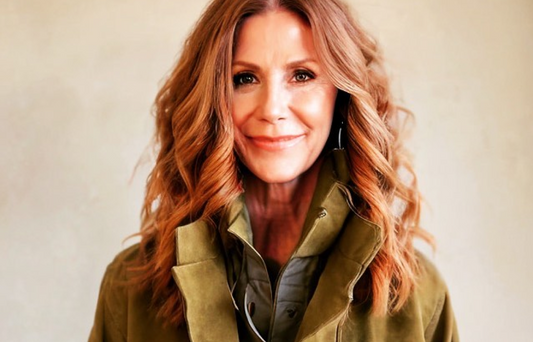
Are you always rushing to get things done? Jamie Hess can help. The TedTalk “work wellness” expert and host of the popular Off The Gram podcast has helped millions of people reclaim their hours with one big brain shift. “We’ve got to stop talking about time management,” she says, “and start saying, ‘How do I want to use my physical, emotional, and mental energy?’ Once I started planning my day through that lens, things really changed for the better.”
And a lot has changed for Hess. Before becoming a wellness coach, she was the publicist for New York’s hottest nightclubs and fashion brands, managing VIPs at runway shows and private parties. “I thought a big piece of success was defined by which celebrity’s table you were sitting at,” she says. “It wasn’t a sustainable way to live.”
Here’s how Jamie found her way out of the party scene, why your phone needs its own bedtime, and how Housewives might truly help unlock better life balance.
You’re a workplace wellness expert. Um… what does that mean?
It means I’m trying to make work part of our modern solution for living. Radical wellness, in my opinion, is so far removed from just diet and exercise. That's an archaic way of looking at wellness. And since we spend so much time at work, that physical space and balance needs to be part of our wellness routine, too.
Fighting for wellness can also be exhausting, right?
[Laughing.] You don’t even know.
Where do you think your passion and energy come from?
I guess it’s like, if I were in a superhero movie, my [origin] story would be Manhattan in the ‘90s. It was total Sex and the City “power girl” culture, and it was all about hustling as hard as you could. The person who sends the last email of the day is the winner. The person who sleeps at their desk is the hero. And then, working in nightlife, you’d be out until 4 in the morning because it was your job. I was a master of this grind culture. I was “winning” and it was so intoxicating and deeply unhealthy! Eventually I was ill and exhausted, and very unhappy. But it took years to make a change.
What’s the most common wellness question you get on your podcast?
“How can I stop burnout?” is a big one. I talk a lot to leadership teams about displaying and demonstrating balance, and prioritizing health, from the top down. We’ve all got to take breaks outside; we’ve all got to spend lunch eating fresh food; we’ve all got to go home and recharge. There are so many studies that show focus, creativity, teamwork, and productivity all increase when we’re well! Why wouldn’t we want to lean into that?!
We’re all about small steps at Wild Elements. What’s one really doable thing we can do for workplace wellness?
Some tech companies do these things called “walkie talkies,” where they encourage their employees to take your conference call while on a walk. The simple act of a boss promoting that can absolutely increase people's happiness at work, and also get those benefits of being outdoors.
What’s a component of success that nobody talks about?
Sleep hygiene.
Seriously?
Oh my gosh, yes. I was just at the Create & Cultivate conference and so many accomplished, incredible women were saying, “I cannot tell when the workday ends.” There’s no boundary for them… I interviewed Ariana Huffington recently, too, and she said that work life balance isn’t a thing until you can advocate for your own wellbeing. She even makes a “bed” for your phone, so you can put your phone to sleep at night. It’s symbolic, obviously, but we need to do it! We need to relearn how to shut off our devices at 5 again. We need to be more accountable to our sleep cycles than our inboxes.
Ok, so how do we hold ourselves accountable?
Honestly, that’s been one of the biggest questions of my life… I love Teddy Mellencamp’s accountability program, ALL IN, so much. But as I was cycling through it, I wondered, “How do we make it a continued thing?” And I think the overarching answer is, you can’t solve a problem in a vacuum. You’ve got to allow yourself to be vulnerable and admit when you need help, and have people you can tell when things are hard, without shame… I was in rehab, and I’ve struggled with disordered eating, and those challenges were only solvable because I asked for help. It’s okay to do that. It doesn’t make you less talented or less valuable. Ultimately, it makes you able to contribute more!
How does a connection to nature play into this?
It’s obviously so important, because spending time outdoors is so great for our emotions, our immune system, our brains, everything. But because we’re so busy, I tell people the first step is to take something you’re doing anyway and do it outdoors. Working out? Great, do an outdoor workout. Brainstorming? Great, take it outside. Eventually, you’re going to want to set aside time to do some grounding.
We love grounding! Why do you?
Because we're a world that's increasingly disassociated from reality, and getting outside is the easiest way to just remind ourselves that we’re human. We spend an average of 900 hours a year scrolling social media. Imagine if you gave yourself back some of those hours.



